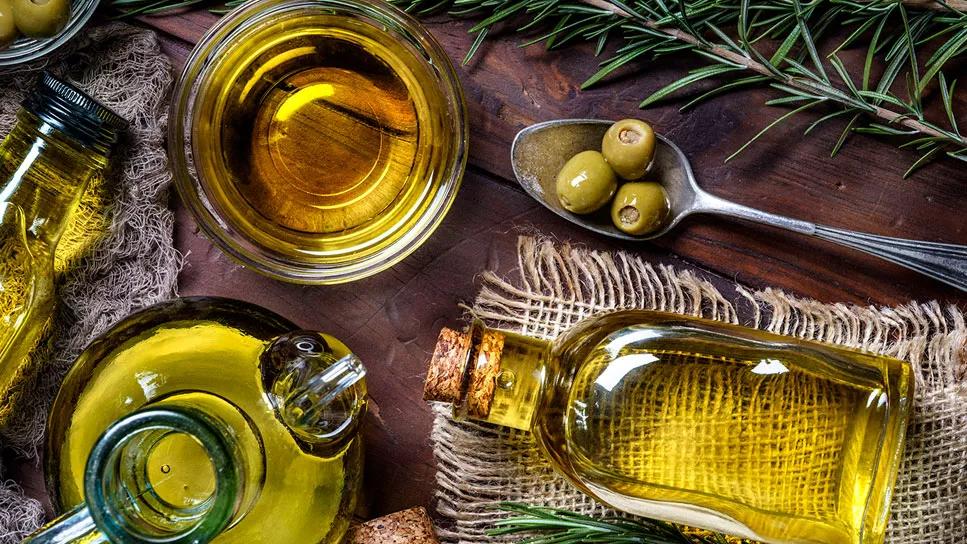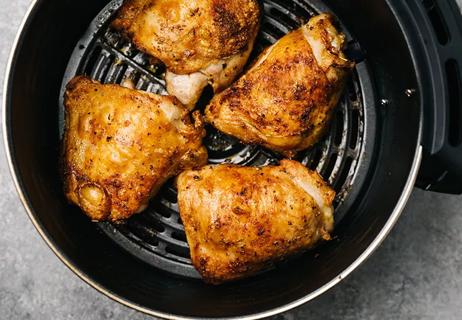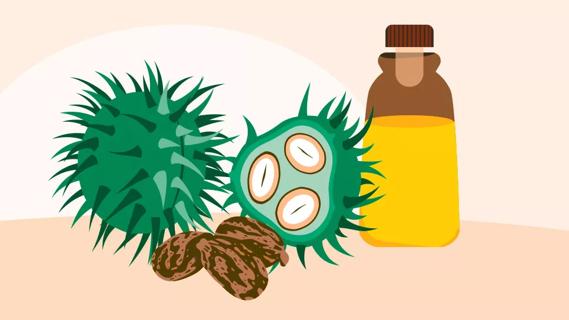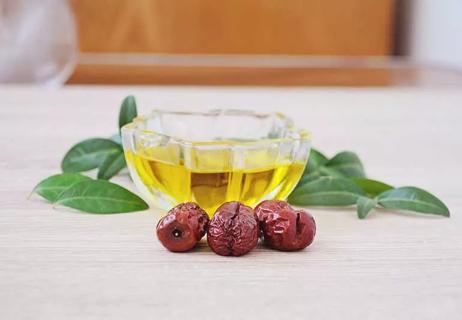EVOO is full of antioxidants and has anti-inflammatory properties, both of which aid your body in multiple ways

Does the word “oil” seem to like it must be incompatible with the term “health benefits”? We get it. Oils are used in deep-frying (which is arguably the least healthy way to prepare food), and seed oils are associated with a variety of health concerns.
Advertisement
Cleveland Clinic is a non-profit academic medical center. Advertising on our site helps support our mission. We do not endorse non-Cleveland Clinic products or services. Policy
But olive oil is different — especially when it’s used with other healthy, minimally processed or unprocessed foods.
“We know that there are quite a lot of health benefits to extra virgin olive oil, in particular,” says registered dietitian Julia Zumpano, RD, LD. “It has been shown to have antioxidants and anti-inflammatory properties, specifically from the types of fat it has.”
Not all olive oil is created equal. There are three grades of olive oil: Refined, virgin and extra virgin, which is often just called EVOO. Of the three, EVOO — the least processed version — reigns supreme.
“All forms of olive oil are good for us,” Zumpano notes, “but extra virgin olive oil isn’t heated or altered by temperature or any chemicals. It’s the closest thing to the pressing of fresh oil.”
EVOO is full of antioxidants and heart-healthy fats, making it a staple in the Mediterranean diet, which is widely regarded as one of the healthiest styles of eating. Extra virgin olive oil is associated with health benefits like:
“No other oils can provide as many benefits as extra virgin olive oil can,” Zumpano adds. “It’s the far superior oil.”
Advertisement
Extra virgin olive oil contains more healthy fat (unsaturated) than unhealthy fat (saturated). It’s also higher in antioxidants than other types of olive oil.
Zumpano recommends 1 to 4 tablespoons of EVOO per day, but notes that the amount that’s healthiest for you depends on a variety of factors that include your age, sex, weight, activity level and overall caloric needs.
Let’s delve deeper into the health benefits of EVOO.
EVOO contains more than 20 types of polyphenols, a category of plant-based chemical compounds that help protect your heart and reduce inflammation throughout your body. Polyphenols are a type of antioxidant.
“Extra virgin olive oil is loaded with antioxidants,” Zumpano confirms, “which is where all of the main benefits come from.”
But what exactly does that mean for you? Antioxidants are tiny little health heroes whose job is to fight unstable molecules in your body called free radicals. If left unchecked, free radicals cause oxidative stress, which can lead to increased signs of aging and the development of chronic diseases.
“Antioxidants are almost like a shield around your cells, like a blanket around them to protect them from oxidative damage,” Zumpano explains.
Olive oil contains mostly monounsaturated fat, a type of unsaturated fat that’s been linked to benefits, like:
But this is only true when you eat monounsaturated fats in place of saturated fats.
“You really only reap the dietary benefits of EVOO if you use it as a replacement ingredient for, say, butter or other types of oil,” Zumpano clarifies. “You can’t just add it to a diet of fried foods and junk food and expect to get the benefits.”
To get the most benefits from EVOO, it should be the primary source of fat in your diet, followed by nuts. Not sure how to get started? Explore the Mediterranean diet to figure out how you can optimize your eating style for your health.
You might only associate inflammation with cuts and other external injuries, like when something gets swollen, puffy and red after an injury. But inflammation can happen inside your body, too, and it can wreak havoc on your health.
But antioxidants can help.
One of the main antioxidants in virgin and extra virgin olive oil is olecanthal, which has such powerful anti-inflammatory properties that it has even been compared to ibuprofen. Oleic acid has also been shown to reduce inflammation.
Advertisement
Oxidative stress plays a role in the development of cancer. But yet again, antioxidants can help.
Multiple studies show that the compounds and antioxidants in EVOO may help lower your cancer risk. And oleocanthal, in particular, is thought to play a role in the cell death of cancer cells.
“Oleocanthal has been shown to work like an anti-inflammatory drug, to the extent that it can reduce oxidative damage due to free radicals — which is one of the main drivers of cancer,” Zumpano explains.
That doesn’t mean EVOO is a magic pill that will prevent cancer; nothing is. But it means that as part of a healthy diet, EVOO is one of many plant-based foods that can help your body stay well and fight disease.
“Olive oil has been studied from a cardioprotective standpoint, and it has been shown to reduce lipids and blood pressure,” Zumpano continues, “all of which are really helpful for your heart.”
There are a few factors at play, starting with the polyphenols we discussed earlier. A 2017 study showed that the polyphenols in EVOO can help protect against:
Next up is oleic acid, the main fatty acid in olive oil. It makes up about 73% of the oil itself, and it’s also heart-healthy.
Advertisement
“Oleic acid is a monounsaturated fat that has been shown to help to lower bad cholesterol, raise good cholesterol and reduce risks of heart disease and stroke,” Zumpano says.
EVOO also provides oleuropein, a compound known for its ability to help lower blood pressure. It has been shown to protect low-density lipoprotein (aka LDL or “bad cholesterol”) from oxidation.
This sounds like a pretty lofty claim for little old olive oil, right? But with all the benefits we’ve just named — including keeping chronic diseases at bay — it makes sense that incorporating extra virgin olive oil into a healthy diet may help you live longer.
A 2022 study found that over a 28-year period, high olive oil consumption was associated with an 8% to 34% lower risk of death related to disease. Specifically, participants who consumed a lot of olive oil were 19% less likely to die of cardiovascular disease and 17% less likely to die of cancer than people who didn’t consume much of it.
You can take a shot of olive oil, if you’re so inclined, yes. But the question is: Why bother? EVOO is so great for cooking that you may as well just incorporate it into your everyday life instead.
“Part of the point of olive oil eating is the pleasure and enjoyment of it,” Zumpano says. “It adds so much great flavor to food.” Consider:
Advertisement
You can also bake with olive oil, but Zumpano says that EVOO’s flavor profile isn’t everyone’s preferred choice for baked goods.
“For some people, EVOO may have too strong a taste for desserts. If you want to bake with olive oil but don’t like that taste, you can opt for a light olive oil. It has a milder taste, but it’s refined, so it will also have fewer antioxidants.”
To be sure you’re choosing a high-quality olive oil, look for one that’s been tested for purity and quality and meets the standards set by the International Olive Council (IOC). Internationally produced olive oils that meet these standards will bear the IOC seal, while North American olive oils that meet these standards bear the seal of the North American Olive Oil Association. Olive oil produced in California may be certified by the California Olive Oil Council.
Learn more about our editorial process.
Advertisement

Olive oil is high in heart-friendly unsaturated fats

Your body needs some saturated fat, but too much can contribute to health issues

It’s best to avoid regular use of the ‘beef drippings,’ given high levels of saturated fat

These common cooking oils are often found in ultra-processed foods and can contribute to inflammation in your body

This healthy oil is packed with nutrients and great for roasting, drizzling and even baking

The popular cooking method can help you cut down on fat without losing the flavor and texture of your favorite foods

The oil some TikTokkers swear by can actually cause stomach and eye issues, as well as skin rashes

This powerhouse oil fights fine lines and wrinkles, soothes sunburn and a whole lot more

The tropical fruit is a good source of antioxidants and vitamin C

Most people fall asleep within 10 to 20 minutes, but if your experience is different, adjusting your sleep schedule may help

Exploring your hidden side can lead to better understanding of what makes you tick